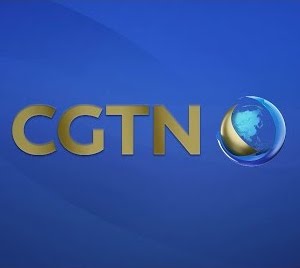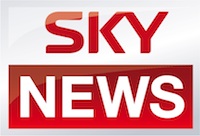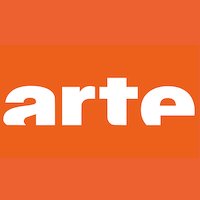Senegalese visit to Borough Jeep in Wayne
Several weeks ago, I got a call from the Embassy of Senegal in Washington, DC - specifically from my friend and advisor Alhousseynou Diallo, the Economic Counsellor. He informed me that a delegation of high-ranking customs officials would be travelling to New York to meet with their American counterparts and discuss bilateral trade.
As an auxiliary component of their trip, he wanted me to organize a presentation on used automobile valuations, and I was happy to oblige. I immediately contacted Joe Franchina at Borough Jeep Chrysler in Wayne, which has been owned by the Hagedoorn family (Prospect Park Hollanders) for over 80 years, and they agreed to host the delegation.
It was a fantastic event, especially given the weather conditions and the excitement with which these dignitaries played in the snow! Samantha Henry at the Herald News covered the event, as seen below.
---------------
Senegal eyes ties with Jersey car dealers
Wednesday, March 21, 2007 By SAMANTHA HENRY - HERALD NEWS
partial scan with photos
WAYNE -- A light snow was dusting the lot at Borough Jeep Chrysler, when a beat-up minivan with diplomatic plates rolled up. It discharged a delegation of port officials from the West African nation of Senegal.
"Welcome, Senegalese friends!" said George Ajjan, a former Republican congressional candidate-turned-entrepreneur, greeting them in French.
Ajjan, 30, of Clifton, had arranged the delegation's March visit to forge better trade ties between New Jersey and West Africa and to capitalize on what Ajjan said was the growing popularity of American SUVs there. "You mention Cadillac Escalade or Hummer to them, and they're beside themselves," Ajjan said. "Rap videos are popular, and Senegal is behind the U.S. and France as the third rap capital of the world."
A Senegalese member of the delegation agreed. "They see everything on TV -- rap music, black culture," said Al Housseynou Diallo, first economic counselor at the Senegalese Embassy in Washington, D.C. "It's popular, especially with young people."
In trying to find ways to export American cars, Ajjan said he came up against the dominance of French car makers in Senegal, the preference for diesel-fueled vehicles, and the high tariffs on American imports. The per capita income of Senegal's 12 million people was $709 in 2005, according to the U.S. State Department.
Ajjan decided that the first thing to do was persuade Senegalese trade officials to lower import taxes. "We're pricing American cars uncompetitively, by basing the tariff on the highest price," he told the group, explaining to them in French about ''le Kelley bleu book,'' -- or the Kelley Blue Book -- and American methods for pricing used cars. "It's an opportunity to build a bridge to Africa," said Joseph Franchina, sales leader at Borough Jeep Chrysler.
Africa isn't the only place where American popular culture -- arguably one of the nation's biggest exports -- may be contributing to a demand for cars that might not otherwise be practical in countries where unleaded gas is exorbitantly expensive. Vecdi Ugurlu, who owns King Motors Inc. on Route 46 in Little Ferry, said American cars -- especially SUVs -- are also catching on in his native Turkey. "Cadillac Escalade, Hummers, all these cars are popular over there, because people have such love for America," he said.
Ugurlu said a Lincoln Navigator, which sells for about $65,000 in the U.S., retails for $175,000 in Turkey, after taxes and shipping costs are factored in. Only a select clientele can afford them, according to Ugurlu, but selling just a few can be lucrative. "It's all image, it shows they are rich," he said. "Here in America, you don't see the difference, because money doesn't distinguish -- if you have credit here, and a steady income, you can drive the same truck as a rich man. But in Turkey, it's impossible to drive the same car, or eat at a fancy restaurant, as a rich man."
Ugurlu said selling cars overseas is a complicated business -- different countries have varying import restrictions and tariff structures. But despite the obstacles, he's seen a number of North Jersey car dealers testing the waters of the international car market via the Internet. "We have buyers all over the world from our Web site," Ugurlu said. "Today, you can get on the Internet and see cars anywhere, transfer funds, and do legal matters. After they wire the money in, we take the car to the port and ship it to them."
Understanding the cultural nuances of international buyers is also important, both Ugurlu and Ajjan said. Ugurlu said in many countries, high mileage on a used car rarely factors into the price, the way it does in America. In Senegal, Ajjan discovered that few prospective buyers are interested in test driving a car, but will insist on a pristine spare tire as a condition of sale. After his presentation to the Senegalese at the Wayne dealership, several of the customs officials seemed persuaded that lowering tariffs and allowing more American cars into Senegal would make a market of willing buyers.
"We live the American life," said Papa Moussa Sy, an airport customs official in Senegal, through a French translator. "If it happens here in the morning, we have it in Senegal by the evening."
Reach Samantha Henry at 973-569-7172 or henrys@northjersey.com.
As an auxiliary component of their trip, he wanted me to organize a presentation on used automobile valuations, and I was happy to oblige. I immediately contacted Joe Franchina at Borough Jeep Chrysler in Wayne, which has been owned by the Hagedoorn family (Prospect Park Hollanders) for over 80 years, and they agreed to host the delegation.
It was a fantastic event, especially given the weather conditions and the excitement with which these dignitaries played in the snow! Samantha Henry at the Herald News covered the event, as seen below.
---------------
Senegal eyes ties with Jersey car dealers
Wednesday, March 21, 2007 By SAMANTHA HENRY - HERALD NEWS
partial scan with photos
WAYNE -- A light snow was dusting the lot at Borough Jeep Chrysler, when a beat-up minivan with diplomatic plates rolled up. It discharged a delegation of port officials from the West African nation of Senegal.
"Welcome, Senegalese friends!" said George Ajjan, a former Republican congressional candidate-turned-entrepreneur, greeting them in French.
Ajjan, 30, of Clifton, had arranged the delegation's March visit to forge better trade ties between New Jersey and West Africa and to capitalize on what Ajjan said was the growing popularity of American SUVs there. "You mention Cadillac Escalade or Hummer to them, and they're beside themselves," Ajjan said. "Rap videos are popular, and Senegal is behind the U.S. and France as the third rap capital of the world."
A Senegalese member of the delegation agreed. "They see everything on TV -- rap music, black culture," said Al Housseynou Diallo, first economic counselor at the Senegalese Embassy in Washington, D.C. "It's popular, especially with young people."
In trying to find ways to export American cars, Ajjan said he came up against the dominance of French car makers in Senegal, the preference for diesel-fueled vehicles, and the high tariffs on American imports. The per capita income of Senegal's 12 million people was $709 in 2005, according to the U.S. State Department.
Ajjan decided that the first thing to do was persuade Senegalese trade officials to lower import taxes. "We're pricing American cars uncompetitively, by basing the tariff on the highest price," he told the group, explaining to them in French about ''le Kelley bleu book,'' -- or the Kelley Blue Book -- and American methods for pricing used cars. "It's an opportunity to build a bridge to Africa," said Joseph Franchina, sales leader at Borough Jeep Chrysler.
Africa isn't the only place where American popular culture -- arguably one of the nation's biggest exports -- may be contributing to a demand for cars that might not otherwise be practical in countries where unleaded gas is exorbitantly expensive. Vecdi Ugurlu, who owns King Motors Inc. on Route 46 in Little Ferry, said American cars -- especially SUVs -- are also catching on in his native Turkey. "Cadillac Escalade, Hummers, all these cars are popular over there, because people have such love for America," he said.
Ugurlu said a Lincoln Navigator, which sells for about $65,000 in the U.S., retails for $175,000 in Turkey, after taxes and shipping costs are factored in. Only a select clientele can afford them, according to Ugurlu, but selling just a few can be lucrative. "It's all image, it shows they are rich," he said. "Here in America, you don't see the difference, because money doesn't distinguish -- if you have credit here, and a steady income, you can drive the same truck as a rich man. But in Turkey, it's impossible to drive the same car, or eat at a fancy restaurant, as a rich man."
Ugurlu said selling cars overseas is a complicated business -- different countries have varying import restrictions and tariff structures. But despite the obstacles, he's seen a number of North Jersey car dealers testing the waters of the international car market via the Internet. "We have buyers all over the world from our Web site," Ugurlu said. "Today, you can get on the Internet and see cars anywhere, transfer funds, and do legal matters. After they wire the money in, we take the car to the port and ship it to them."
Understanding the cultural nuances of international buyers is also important, both Ugurlu and Ajjan said. Ugurlu said in many countries, high mileage on a used car rarely factors into the price, the way it does in America. In Senegal, Ajjan discovered that few prospective buyers are interested in test driving a car, but will insist on a pristine spare tire as a condition of sale. After his presentation to the Senegalese at the Wayne dealership, several of the customs officials seemed persuaded that lowering tariffs and allowing more American cars into Senegal would make a market of willing buyers.
"We live the American life," said Papa Moussa Sy, an airport customs official in Senegal, through a French translator. "If it happens here in the morning, we have it in Senegal by the evening."
Reach Samantha Henry at 973-569-7172 or henrys@northjersey.com.
















